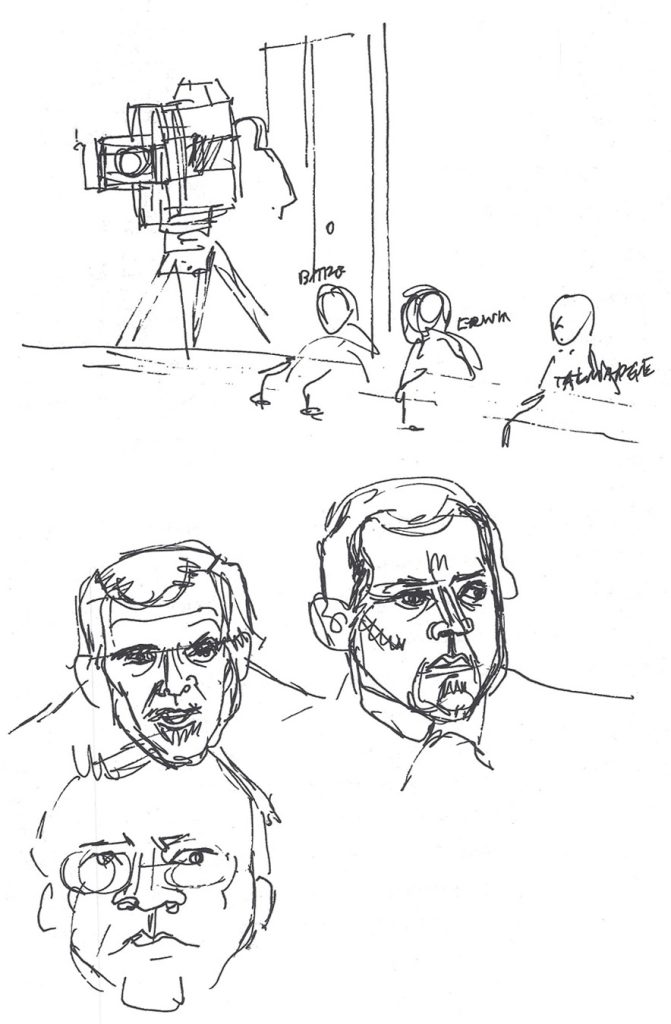Alexander Mackendrick
Sticking
- May 7, 2025
- 2 Min Read
Watergate Hearings
In the early 1970s, Mackendrick wondered whether certain principles of narrative fiction filmmaking could be applied to non-fiction documentary material. With an interviewer in 1975, Mackendrick discussed a sequence from the Watergate Hearings that he found particularly interesting, explaining that he had been
looking at the exchange between Howard Baker, the Senator, when he was asking questions
of Liddy’s secretary, and she was claiming, probably quite justifiably, that when she had typed
out the reports of the bugging in the Watergate, she had no idea of what it was she was typing.
It’s hard to believe in some ways, though secretaries will tell you it’s true. But at the same time secretaries are naturally curious people and like to know what it is they are typing. Baker said, “Is this what you’re telling me, Ms. So-and-so.” And she said, “Yes.” He looked at her, and she looked back, and he looked at her, and said to himself, “Well, OK then.” What happened in those gaps was that the smart editor cut away on “Is this what you’re telling me?” which meant on that particular line we saw a close shot of her as she prepared her answer, which was simply “Yes.” Then it went back to Baker, who looked at her. His look said to us, the audience, “I don’t believe a word of what you’re saying.” Then it went back to her, with her look of “You may not, but that’s all I’m going to say.” Then we go back to Baker: “Cool one. I’m not going to get anything out of her. Let’s continue.” Now, the silences, the unspoken language of that exchange, is the language of television and video, and is the language that we know better even than words.
Here for a compilation of Mackendrick’s student handouts on the subject.
Here is an analysis of that sequence from the Watergate Hearings, June 1973, which includes commentary from Mackendrick and his students.
Here is a longer clip from that broadcast.

